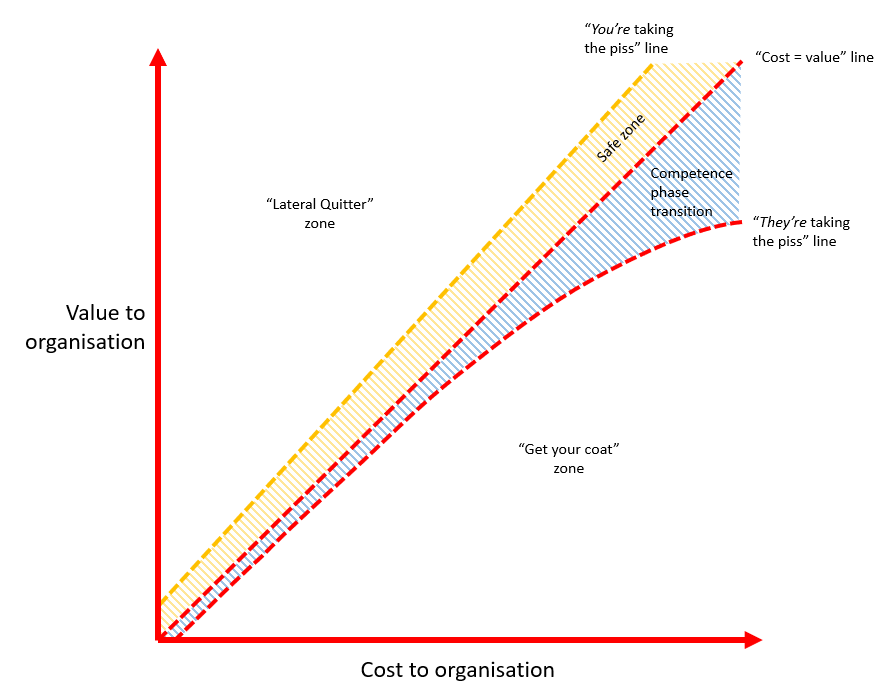Competence phase transition: Difference between revisions
Amwelladmin (talk | contribs) No edit summary |
Amwelladmin (talk | contribs) No edit summary |
||
| Line 1: | Line 1: | ||
{{a|hr|{{image|Competence phase transition|png|The competence phase transition, yesterday}}}}{{d|{{PAGENAME}}|/ˈkɒmpɪtəns feɪz trænˈzɪʃ(ə)n/|n}} | {{a|hr|{{image|Competence phase transition|png|The competence phase transition, yesterday}}}}{{d|{{PAGENAME}}|/ˈkɒmpɪtəns feɪz trænˈzɪʃ(ə)n/|n}} | ||
(''Human resources''): Grazing grounds for [[weak gazelle]]s. A sort of purgatorial state occupied by earnest plodders who don’t really earn their keep but do the organisation no real harm, such that no-one can quite summon the bureaucratic energy to proactively whack them, | (''Human resources''): Grazing grounds for [[weak gazelle]]s. A sort of purgatorial state occupied by earnest plodders who don’t really earn their keep but do the organisation no real harm, that sits below the [[cost-value threshold]] but close enough to it such that no-one can quite summon either the bureaucratic energy to proactively whack them, or crocodile tears should they unexpectedly decide to push off by themselves. | ||
Counter-intuitively, the more senior the employee, the ''greater'' is the phase transition between those who are categorically valuable and those who are definitive fish-food. Partly, this is because the cost of getting rid of [[fat bird on a thin branch|fat birds on thin branches]] is greater, but also the more one is paid, the more senior one is likely to be, and therefore the one making the decisions who to get rid of. | |||
And turkeys don’t vote for Christmas. | And turkeys don’t vote for Christmas. | ||
| Line 9: | Line 9: | ||
{{sa}} | {{sa}} | ||
*[[Lateral quitter]] | *[[Lateral quitter]] | ||
*[[Cost-value threshold]] | |||
Revision as of 20:39, 22 November 2022
|
The Human Resources military-industrial complex
|
Competence phase transition
/ˈkɒmpɪtəns feɪz trænˈzɪʃ(ə)n/ (n.)
(Human resources): Grazing grounds for weak gazelles. A sort of purgatorial state occupied by earnest plodders who don’t really earn their keep but do the organisation no real harm, that sits below the cost-value threshold but close enough to it such that no-one can quite summon either the bureaucratic energy to proactively whack them, or crocodile tears should they unexpectedly decide to push off by themselves.
Counter-intuitively, the more senior the employee, the greater is the phase transition between those who are categorically valuable and those who are definitive fish-food. Partly, this is because the cost of getting rid of fat birds on thin branches is greater, but also the more one is paid, the more senior one is likely to be, and therefore the one making the decisions who to get rid of.
And turkeys don’t vote for Christmas.
